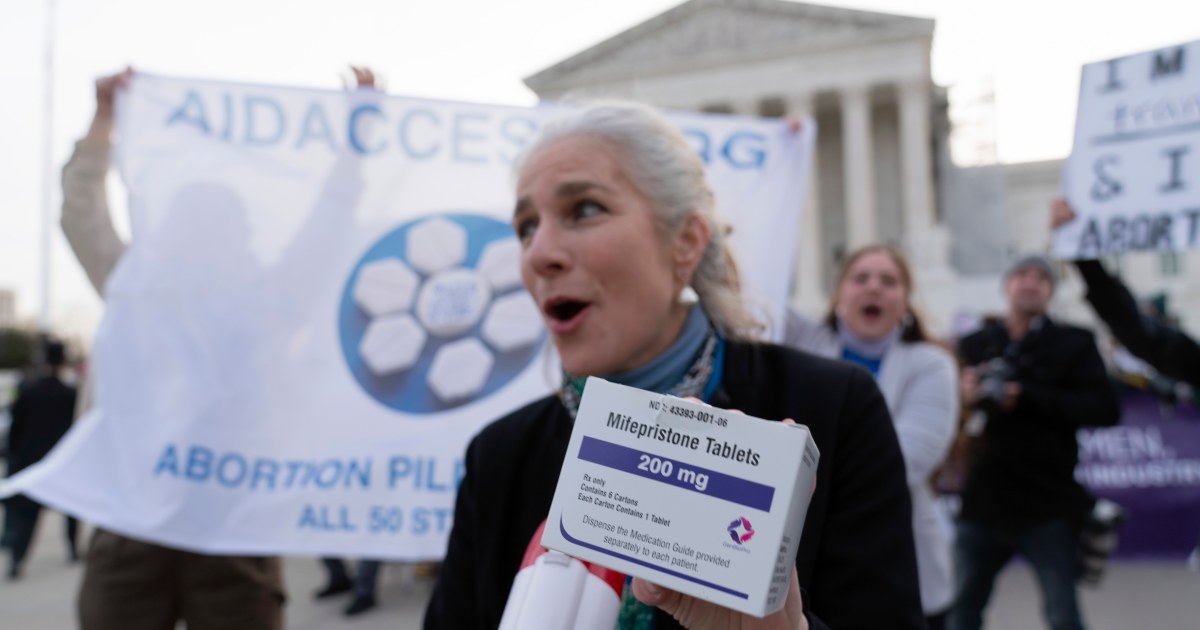By Lindsey Tanner
Associated Press
A sexual assault survivor decides to get sterilized so that if she's ever attacked again, she won't be forced to give birth to a rapist's baby.
An obstetrician delays inducing a miscarriage until a woman with serious pregnancy complications appears "sick enough."
A lupus patient should stop taking her medication that controls her disease because it can also cause miscarriages.
Restrictions on abortion in various states and the Supreme Court's decision to overturn Roe v.
Wade are having profound repercussions like these on decisions made in sexual and reproductive health and other areas of health care.
“
For doctors and patients alike, this is a scary and tense time
, with unprecedented new concerns about data privacy, access to contraception and even when to intervene and deliver life-saving medical care,” he said. Jack Resneck, president of the American Medical Association, told The Associated Press.
Even in medical emergencies, doctors sometimes refuse immediate treatment.
Last week, an Ohio abortion clinic received calls from two women with ectopic pregnancies, when an embryo grows outside the uterus and cannot be saved, who said their doctors didn't want to treat them.
Ectopic pregnancies often become life-threatening emergencies and abortion clinics are not equipped to treat them.
This is just one example of
"the horrible aftereffects of criminalizing abortion care
," said Dr. Catherine Romanos, who works at the Dayton clinic.
An operating room technician performs an ultrasound on a patient at Hope Medical Group for Women in Shreveport, Louisiana, on July 6, 2022.Ted Jackson/AP
medical dilemmas
Dr. Jessian Munoz, an obstetrician and gynecologist in San Antonio, Texas, who treats high-risk pregnancies, said it used to be clearer what medical decision to make.
"It was like, the mom's life is in danger, we have to evacuate the uterus by any means," he said.
"Whether it's surgical or medical, that's the treatment," he noted.
Now, he said, doctors whose patients develop pregnancy complications are having a hard time determining whether a woman is "sick enough" to warrant an abortion.
With the fall of Roe v.
Wade, "the art of medicine is lost and has actually been replaced by fear," Muñoz said.
[Physicians face legal questions to perform abortions. But calling the lawyer can mean "life or death"]
Munoz said
he faced a dire situation with a recent patient who had started miscarrying
and developed a dangerous womb infection.
The fetus still had signs of a heartbeat, so an immediate abortion, the usual standard of care, would have been illegal under a recent restrictive Texas law.
"We saw her physically getting sicker and sicker" until the fetal heartbeat stopped the next day, "and then we were able to intervene," he said.
The patient developed complications, required surgery, lost several liters of blood and had to be placed on a ventilator "all because we were basically 24 hours late."
Texas Supreme Court Blocks Legislation Allowing In-Clinic Abortions
July 2, 202200:20
In a study published this month in the American Journal of Obstetrics and Gynecology, doctors at two Texas hospitals cited the cases of 28 women at less than 23 weeks' gestation who were treated for unsafe pregnancies.
Doctors noted that all of the women had been advised to delay abortion for nine days because fetal heart activity was detected.
Of those, nearly 60% developed serious complications, nearly double the number of complications experienced by patients in other states who had immediate therapeutic abortions.
Of eight live births among the Texas cases, seven died within hours.
The eighth, born at 24 weeks, had serious complications including bleeding in the brain, a heart defect, lung disease, and intestinal and liver problems.
Before overturning Roe v.
Wade, the Supreme Court did not allow states to ban abortion before the point called viability, which is when the fetus can survive outside the womb (approximately 24 weeks).
Chicago diversity executive Sheena Gray survived a harrowing abortion experience last year, when doctors discovered she had an embryo in a fallopian tube and an eight-week-old fetus in her womb.
They removed the embryo along with the affected fallopian tube and told her that they needed to abort the other fetus to save her life.
The decision to continue treatment was hers: abortion is still legal in Illinois.
In fact, the state provides greater access to abortion than most others, and has been inundated with patients seeking abortions following the recent Supreme Court decision.
[State Abortion Ban Could Affect More Than Half of Nation's Veterans and Women with Disabilities]
Gray said he's heard that similar care has been denied or delayed in other states, and he fears the high court's ruling will force other patients to face the same fate.
"No one should be making these decisions for a woman, period," he said.
Her story has a much happier ending: Gray became pregnant again and gave birth to healthy twin girls on July 8.
choose sterilization
Julie Ann Nitsch, a sexual assault survivor and administrator at a community college in Austin, Texas, is one of many women in states with restrictive abortion laws who are clamping down.
Nitsch says she chose sterilization at age 36 rather than risk becoming pregnant by another rapist.
“I ripped out my organs” to prevent that, the woman said.
More men seek vasectomy in the US amid abortion ruling
July 1, 202200:31
Nitsch says she "saw" what was happening when Texas enacted a law last year that bans most abortions after six weeks, even in cases of rape or incest.
She said that she felt that Roe v.
Wade would be overturned, so she underwent surgery to remove her fallopian tubes in February.
"It's sad to think that I can't have children, but it's better than being forced to have children," she said.
Dr. Tyler Handcock, an Austin OB/GYN, said his clinic has heard from hundreds of patients seeking sterilization since the June 24 Supreme Court decision.
Many choose this route because they fear that long-acting or other contraceptives may also be restricted or limited following the high court ruling.
His clinic scheduled a group counseling session for July 9 in the face of this spike in consultations, and each of the 20 patients who showed up to hear about the risks and ramifications of fallopian tube removal made an appointment to undergo to surgery.
[Abortion on the high seas: This doctor offers abortions in the waters of the Gulf of Mexico for those who live where it is prohibited]
Some doctors are reluctant to perform the surgery on young women who have many reproductive years left, fearing that they will change their minds later.
Handcock said she heard from a 28-year-old woman who said six OB/GYNs refused to sterilize her.
Handcock said the choice should be up to the patients.
“I will protect my patients and their rights however I can,” she said.
run out of medicine
Becky Schwarz, of Tysons Corner, Virginia, has found herself unexpectedly embroiled in the abortion controversy even though she has no plans to get pregnant.
The 27-year-old has lupus, an autoimmune disease that can cause the body to attack the tissue around the joints and organs, leading to inflammation and often debilitating symptoms.
For Schwarz, these include bone and joint pain, and difficulty standing for long periods of time.
The number of people who travel to Mexico to have access to abortion increases
June 27, 202203:18
She recently received a notice from her doctor that she would have to stop taking a medication that relieves her symptoms, which contains methotrexate, at least while the office reviews its policies on the drug in light of the Supreme Court ruling.
This is because the drug can cause miscarriages and could theoretically be used in an attempt to induce an abortion.
“For me, to be treated like a child by a policy who can't take care of herself, instead of being trusted with how I handle my own body... is something that makes me angry,” she said.
[Changing laws on access to abortion in several states create confusion for patients and clinics]
The Arthritis Foundation and the American College of Rheumatology have issued statements of concern about patient access to the drug.
Steven Schultz of the Arthritis Foundation said the group is working to determine how widespread the problem is.
Patients who have trouble getting the drug can contact the group's helpline, he said.
confusing laws
Many abortion laws are vague and vary by state.
That can leave doctors confused about what they're allowed to do.
“We've asked some lawmakers, 'How are medical providers supposed to interpret the law?'” said Dr. Dana Stone, who lives in Oklahoma, a state that recently banned nearly all abortions.
“And they say, 'They'll figure it out,'” she said.









